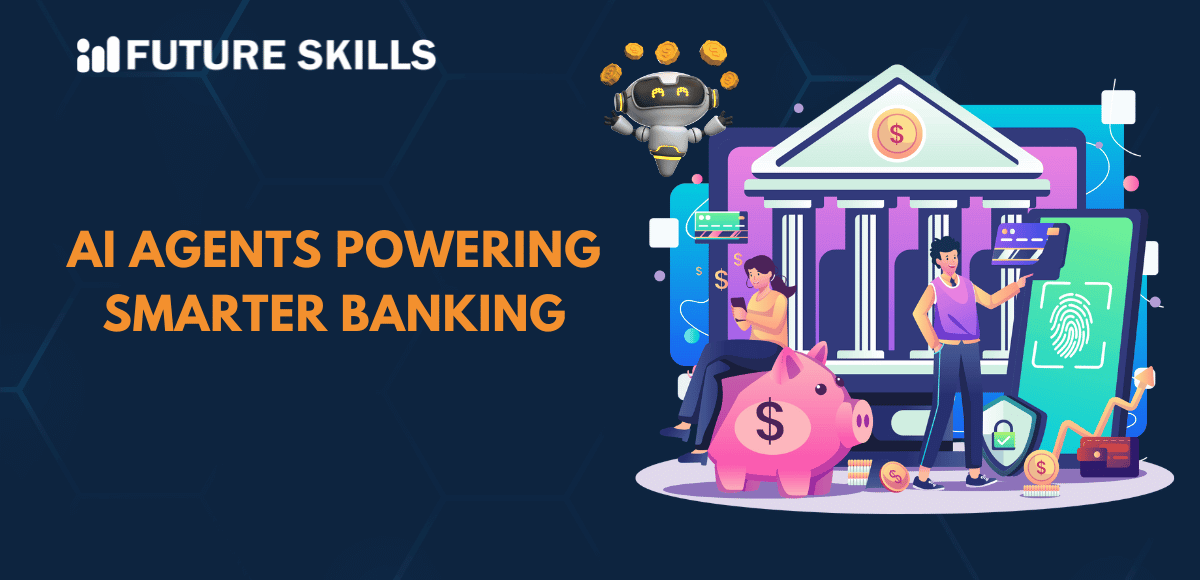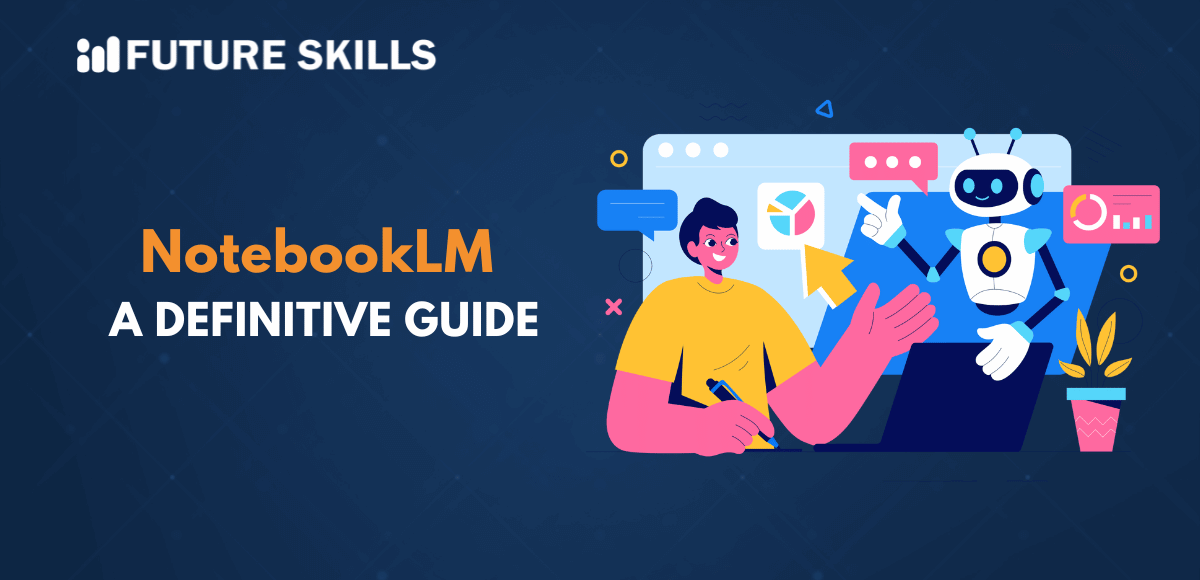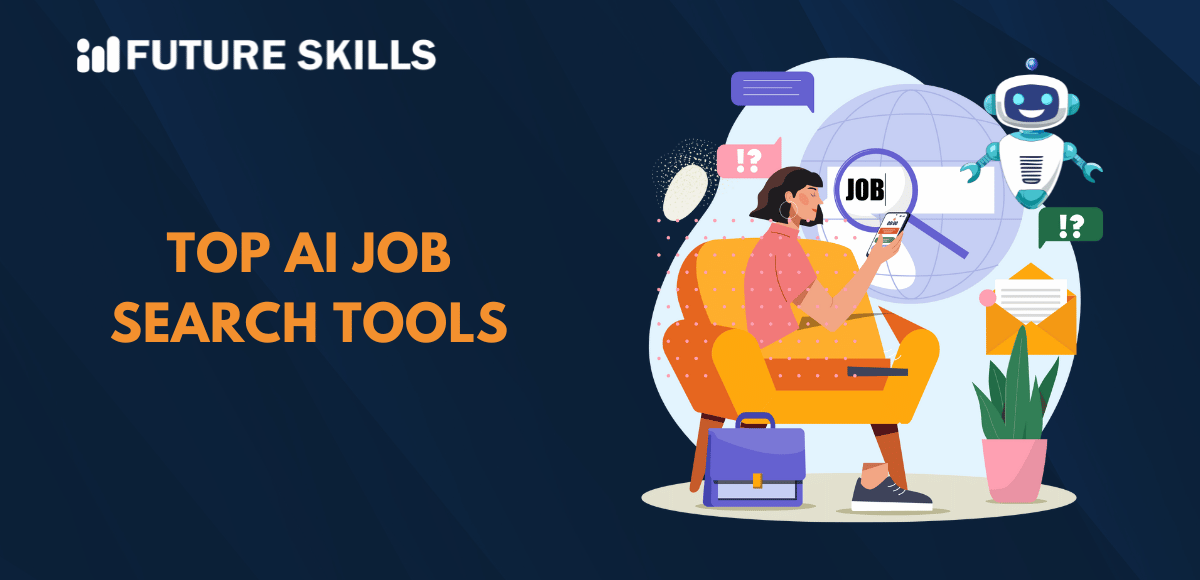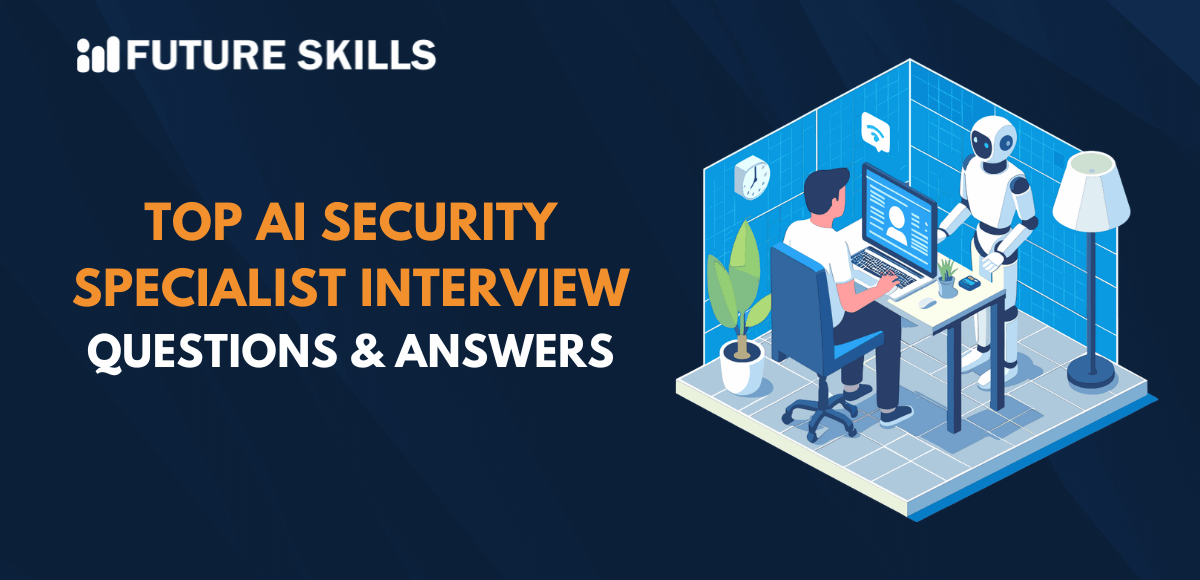In the technology-driven world, fintech firms and banks are leveraging Generative AI to boost efficiency. Generative AI has emerged as a boon that can improve efficiency through automating repetitive tasks and improving the decision-making process.
The intelligent agents are able to act in an independent manner and streamline diverse operations. Thus, it becomes simpler for banks and fintech firms to handle their frontend and backend operations in a strategic manner. It is time to explore the role of AI agents in banking.
Learn how to use AI in different scenarios with our advanced Certified AI Professional (CAIP)™ Course and become a certified AI expert.
An Insight into AI Agents
AI agents refer to the autonomous software systems that are able to perceive their environment. They are capable of making decisions on their own and carrying out actions for achieving user-defined goals. The human intervention that is needed in AI agents is minimal in nature. This makes these tools highly effective and efficient in diverse settings.
An area where AI agents are playing a catalytic role today is banking. The novel technology has undoubtedly redefined how conventional banking practices are carried out by fintech and banking organizations. This is because, unlike conventional Artificial Intelligence Assistants, AI agents can perform advanced reasoning and leverage tools to undertake complex activities.
Impact of AI Agents on Banking
The impact of AI agents in banking has been phenomenal. Although AI agents are in their nascent stage, they have shown immense promise in varying domains such as fintech and banking. Some of the major impacts include:
-
Better Automation
Many banking and fintech firms have been leveraging AI agents in order to promote automation. This decision has been revolutionary as they are able to perform recurring and routine tasks in an autonomous manner. If you are wondering, what are the use cases of AI agents in banking? You need to remember that many organizations are automating their customer service function by using AI agents.
-
Higher Efficiency
In recent times, AI agents have been reshaping banking practices by boosting operational efficiency. Thanks to AI agents in banking, several processes, such as account opening and loan processing, have been streamlined. Such practices required considerable manual effort. Moreover, they took significant time, which impacted the efficiency of firms. Because of banking AI agents, processes have become simpler, which has resulted in improved efficiency.
-
Improved Customer Satisfaction
The strategic use of AI agents for financial services has the potential to significantly improve customer satisfaction. This is because banks can deliver services to them in a faster and more personalized fashion. It has become quite common for several banks and fintech firms to use AI chatbots and virtual assistants to promptly respond to the queries of customers. As a result, their usual waiting time gets reduced.
-
Better Fraud Detection
The application of AI agents in the financial services landscape has empowered organizations to strengthen their fraud detection processes. AI agents are able to strengthen these practices by relying on real-time transaction monitoring. The novel technology also relies on pattern recognition to locate anomalies and pinpoint suspicious individuals.
-
Better Decision-Making
In the prevailing times, fintech firms have been using AI agents for financial services decision-making. These agents are able to analyze a large volume of data and information in real-time. They thus offer data-driven information that helps organizations to make strategic and well-informed decisions. A key thing to remember is that the use of AI-based analysis minimizes the possibility of human error.
In a short span of time, AI Agents have redefined the banking and fintech landscape. In the future, when the technology evolves further, its contribution may become indispensable for organizations as well as customers.
Explore the power of AI and Fintech combined with our unique AI and Fintech Course. Learn how to implement AI and Fintech together with this comprehensive course.
Main Areas Where Banking Firms Use AI Agents
In order to boost the level of efficiency, banks make use of banking AI agents in diverse areas. Are you wondering – What are the use cases of AI agents in banking? If yes, you need to look at the top use cases, including:
-
Customer Service
The customer service function has undergone a sea change in the banking arena because of AI Agents. Fintech firms and banks are able to offer personalized experiences to customers by capitalizing on AI Agents. These agents are able to assess past data and the buying history of customers before responding to their queries. As a result, AI agents are able to effectively and efficiently respond to customers and transform customer engagement in the banking and fintech sectors.
-
Financial Advice
AI Agents are being used today to offer personalized financial advice to customers. You can rely on these novel agents for diverse subjects such as budgeting, investing, saving, and many more. Moreover, by relying on AI agents, customers can manage their portfolio in an automated manner. They can even take advantage of personalized investment strategies to get better returns.
-
Regulatory Compliance
Banks and fintech firms have to comply with a broad range of regulations and laws while operating. AI agents certainly automate transaction monitoring for KYC, AML, and other regulatory requirements. Banks and fintech firms can rest assured, as AI agents can help generate accurate reports and minimize the risks relating to compliance aspects. These agents can eliminate or minimize the need for human agents to look at the regulatory compliance area.
-
Transaction Monitoring
Banks and fintech firms have to monitor a large number of transactions on a regular basis. Thanks to AI Agents, they are well-equipped to monitor transactions in an accurate manner on a real-time basis. With the help of the capabilities of AI agents, it becomes possible to locate suspicious transactions and prevent fraud. Thus, banks are in a position to manage risks relating to unauthorized economic activities. You must also consider this area when it comes to agentic AI use cases in financial services.
-
Automation of Credit Checks
While talking about AI agent or agentic AI use cases in financial services, it is essential to consider automated credit checks. Organizations can capitalize on Artificial Intelligence to carry out credit assessments in an efficient manner. Thus, it becomes simpler for a fintech firm to evaluate the creditworthiness of a borrower. Such a type of automation plays a key role as it helps streamline the approval of loans, which are backed by effective evaluations.
As AI agents get more advanced in the future, their use cases may further expand in the banking and fintech realm. It is essential for you to understand how banks currently leverage novel technologies like AI agents to transform their practices and processes.
Understand how fintech is revolutionizing finance and develop a career with our Fintech Certification Program. Enroll now!
Final Words
AI Agents have emerged as a highly promising technology in the banking and fintech arena today. Many firms have started relying on advanced forms of AI to improve automation, boost efficiency, enhance customer satisfaction, improve decision-making, and strengthen fraud detection practices.
Some of the top use cases of AI agents in banking include customer service and financial advice. Similarly, in areas such as regulatory compliance, transaction monitoring, and credit checks automation, AI agents are playing an important role. You need to bear in mind that AI Agents have surfaced as top tools that can boost the efficiency of banks today.






